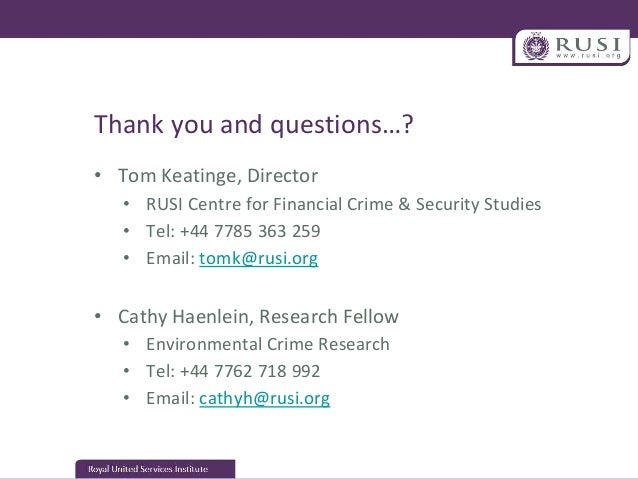
Image source: https://image.slidesharecdn.com/tomkeatingerusi-161211222330/95/wildlife-trafficking-and-illicit-financial-flows-the-role-of-financial-investigation-23-638.jpg?cb=1481495179
Financial investigation is the generic term used to describe those who examine accounting records and other financial documents. It is not just ordinary accountants that do this sort of work but a whole range of people such as police, lawyers and many more besides.
Somebody who investigates fraud and other criminal activity involving money needs additional skills when compared to an accountant who simply audits the books or prepares a tax return. This sort of financial investigation can never be routine because each circumstance is very different. The need for an intuitive approach is essential and good financial investigators must learn to think outside the box, to almost put themselves inside the mind of the perpetrator they are investigating in order to understand what activity is being supported by the numbers they are observing.
A financial investigator will often need to interview persons connected to a fraud or crime and that can often mean speaking to the suspected fraudster as well. Good interviewing technique is essential and this is best obtained by experience, though a lot of useful pointers can be picked up from high quality training. For example it is a good idea to have a plan prepared for an interview in advance, so that some idea of the information being sought has been considered.
However, the bulk of financial investigation work comes down to examining the records of the financial activity. Understanding accounting records needs accountancy skills, but the investigator does not necessarily need to be an accountant. It is often said that accountants make good financial investigators, but good financial investigators will not necessarily make good accountants! In short, accountancy training and a good head for figures is absolutely essential for financial investigation work. The public sector authorities are often criticised for authorising hundreds of accredited financial investigators without drawing on the more expensive and experienced accountancy resources necessary for most complex investigations.
A financial investigator will need to understand the best way to approach each new case. This will involve establishing an initial overview of the problem and what is the required outcome. There is no sense in carrying out an exhaustive examination of every aspect of a business's finances if the owners simply require enough evidence to safely dismiss a member of staff who is suspected of stealing.
A good financial investigator will be accountancy trained, but there the image of the accountant ends. He or she will need a grounding in relevant legal issues, interviewing techniques and evidence handling methods. There is often a need for tenacity, and to be able to withstand insults or threats from culprits trying to avoid detection. A level head and a robust approach will help the expert financial investigator to obtain the information required before the task of analysing and interpreting the details takes place.